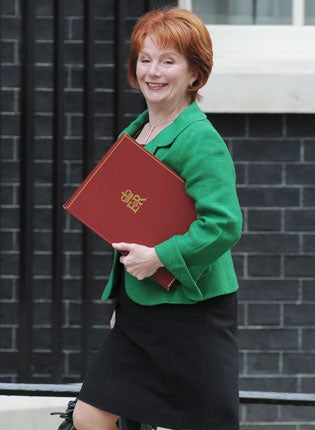Tax authorities may close housing loophole
Exemption for 'second homes' faces abolition

MPs could lose their special treatment under the tax system, which exempts their controversial "second homes" allowance from income tax.
Amid growing evidence about how MPs have milked the expenses system, it has also emerged that the tax authorities are to investigate whether any MPs have wrongly avoided paying capital gains tax when they sold their second homes. The current rules allow MPs to designate different properties as their first and second homes for tax and expenses purposes.
MPs enjoy a special exemption under tax laws – which are approved by parliament itself. These say that "no liability to income tax arises in respect of ... additional expenses necessarily incurred by the member in staying away from the member's only or main residence for the purposes of performing parliamentary duties."
But the stream of disclosures about expenses in recent days has exposed how MPs use the "second homes" allowance for a wide range of items including electrical goods, furniture, repairs, renovations and garden maintenance.
One tax expert told The Independent yesterday: "It is difficult to see how some of the items published meet this test. I suspect that once the understaffed [Commons] fees office has passed the claim it is then just ticked through by HM Revenue & Customs without further questions."
HMRC has been monitoring the revelations about MPs' expenses in recent days. It has no say over the rules on expenses, which are set by MPs, but it has a duty to make sure they are in line with the tax system as a whole. A spokesman said yesterday: "We use a wide variety of information sources to ensure the tax system operates as it should. We can't discuss in detail the tax affairs of MPs or how we go about making sure the tax rules are properly applied but one of our key roles is policing the tax rules and we do this very effectively right across the board."
Any MP found to have escaped CGT could face a backdated tax bill for up to 40 per cent of the profit made from selling a house or flat which was not their "main home".
Hazel Blears, the Communities Secretary, admitted yesterday that she did not pay CGT when she sold a flat in Kennington, south London, for £200,000 in 2004 and made a £45,000 profit.
Ms Blears insisted that she had done nothing wrong because "no liability" for tax had arisen on the flat sale.
"I have complied with the rules of the House, the rules of the Inland Revenue and that's the situation as it is," she said. "But I understand how strongly the public feel about it."
Disclosures in the Daily Telegraph, which has obtained the expenses paid to all 646 MPs since 2004, have revealed that some have repeatedly switched their first and second homes, allowing them to maximise their claims.
How Blears avoided capital gains tax
The Communities Secretary Hazel Blears escaped paying £18,000 in tax when selling a London flat. In March 2004, Ms Blears designated her house in her Salford constituency as her second home. But the following month, she switched her second home to a flat in Kennington, London, and began claiming £850 a month for the mortgage. She sold it four months later in August 2004 for £200,000, making £45,000 profit. As the flat had been designated as her "second home" under Commons rules, she was able to claim thousands of pounds in mortgage interest and running costs. But the Salford MP did not pay any capital gains tax on the windfall. Critics said she should either have paid the tax or not claimed the expenses. CGT is charged at 40 per cent when a property not regarded by the taxman as a main residence is sold, so Ms Blears could have been hit with an £18,000 bill.
Join our commenting forum
Join thought-provoking conversations, follow other Independent readers and see their replies
Comments
Bookmark popover
Removed from bookmarks